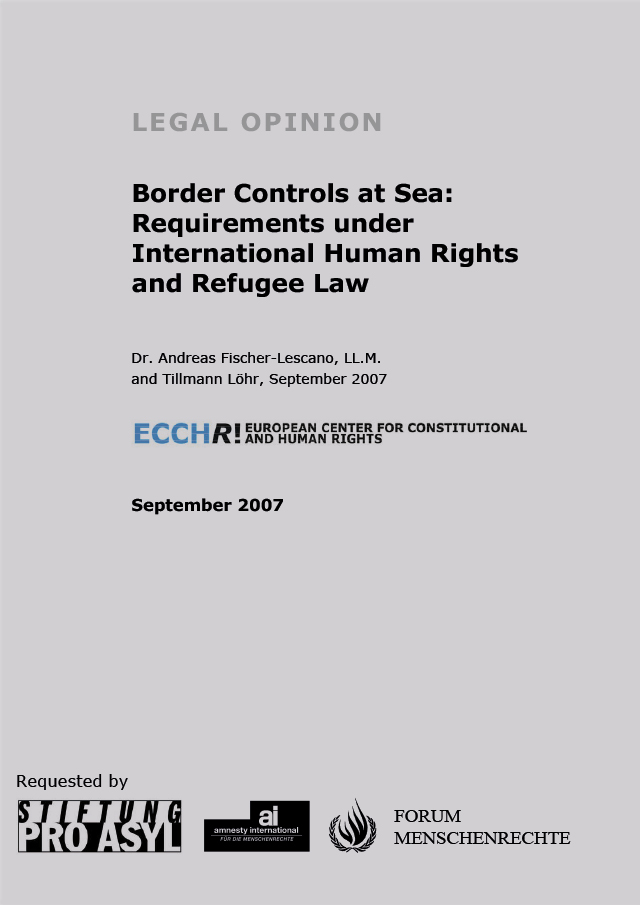Legal Opinion: Border Controls at Sea: Requirements under International Human Rights and Refugee Law
September 2007
ECCHR / Dr. Andreas Fischer-Lescano, LL.M. and Tillmann Löhr, September 2007
Requested by STIFTUNG PRO ASYL, Amnesty International and Forum Menschenrechte
The outcome of this synopsis of refugee, human rights and maritime law is that states cannot circumvent refugee law and human rights requirements by declaring border control measures – i.e. the interception, turning back, redirecting etc. of refugee boats – to be rescue measures. In the case of both rescue at sea and border control measures vis-à-vis migrants who are not in distress at sea, the following procedures are required:
- Transfer of the protection seekers and migrants to a safe place on EU territory
- Conduct of proceedings in order to examine the asylum application
- Legal review of the decision.
The maritime obligations apply to private and state sector captains alike. Whether the rescue of refugees in distress is carried out by private persons or border control bodies is irrelevant; the obligation remains to transfer the persons affected to a “place of safety” where the above-mentioned human rights and refugee law requirements concerning proceedings and legal protection can be met.
According to guidelines from the International Maritime Organisation’s Maritime Safety Committee (MSC), a vessel, as a general rule, cannot be deemed a safe place within the meaning of the SAR214 any more than procedural rules for human rights and refugee law can be observed on board.
Asylum seekers and migrants who are taken in at sea or have reached the jurisdiction of European border control bodies by other means, must, therefore, be permitted to disembark and reside on dry EU land pending a decision and appeal.
